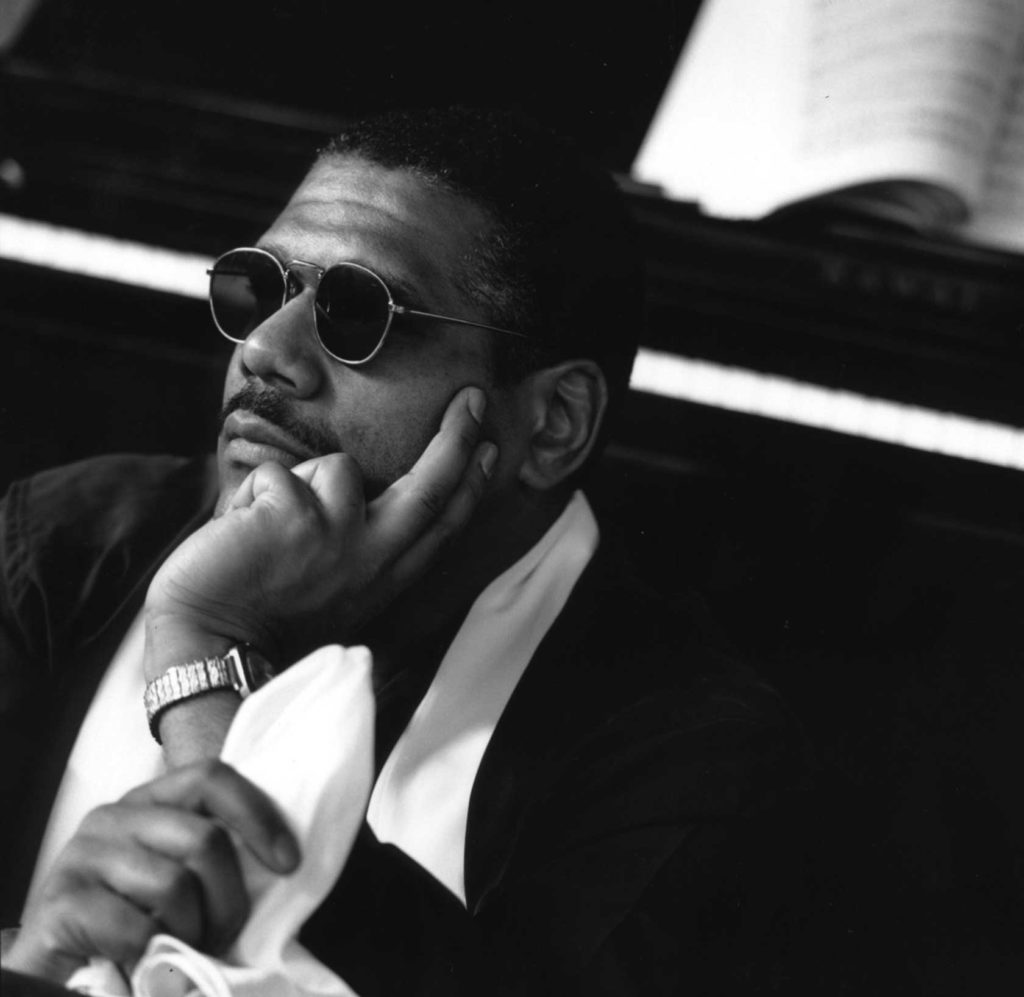
Pianist and composer Donal Fox performs Friday, Dec. 3 in a free, mostly virtual event as part of the JazzNOW series co-sponsored by GBH and JazzBoston. Taking place live in GBH’s Fraser Performance Studio before a live audience of 40 to 50 people, the concert will also be available through live streaming. Fox will perform from 8 – 9 p.m. and there will be a Q & A session from 9 – 9:20 p.m. Eric Jackson, host of GBH’s “Eric in the Evening,” and Cathy Fuller, host of CRB’s “Classical Music with Cathy Fuller,” will co-moderate the event.
Fox, who grew up in the Boston area and still makes his home here, is like the fox that philosopher Isaiah Berlin described: “The fox knows many things.” Indeed, with a repertoire that includes the work of Bach, Thelonious Monk, Chopin, Coltrane, Scarlatti and Horace Silver, Fox has that rare capacity to be open to the world musically.
Banner: You record and perform a wider range of compositions than most musicians, including classical and jazz. What are some common features that unite this music?
Donal Fox: When I was growing up, we had all kinds of music in our home, from Bach to Bartok to Stravinsky to Monk to Miles. My father studied music composition at Boston University before becoming a physicist; my mother practiced the violin as a child in Panama before coming to the U.S. to study philosophy, also at BU. I didn’t draw distinctions; the idea of categorizations is foreign to me. Think of what the great jazz saxophone player and composer Wayne Shorter said when he was asked why he plays differently than John Coltrane: “It’s how you scramble those eggs.”
In 1997 you received a Guggenheim Fellowship, and in 2008 an American Academy of Arts and Letters Academy Award in Music Composition. Tell us a little about your original work.
When I’m writing for institutions or classical ensembles, it’s fun to introduce the musicians to the use of improvisation. With youth performing classical music, there can be a tendency to over-intellectualize. Over time, younger musicians I’m teaching can gain more confidence with the freedom to improvise, the liberty to express themselves. I consider it the greatest success if you can’t tell if the music that is performed was improvised or written down.
Your 2010 album “The Scarlatti Jazz Suite Project” includes the John Coltrane tune “Mr. Syms” and Horace Silver’s “Peace.” What drew you to these two songs?
There’s an emotional connection, and of course those are both beautiful songs.
What can we expect to hear at the JazzNOW event?
I’m very excited about it! It’ll be a conversation with two great radio personalities. That helped shape the entire program. Then, too, the performance is my first since knee surgery and COVID. I’ll play compositions by Bach and Ellington, among others. The set list may include — though it could change! — improvisation on Bach’s Prelude in D Minor, Book II, No. 6; Reflections in D by Duke Ellington; Notice in Moments Ballad based on Coltrane’s Moment’s Notice; Variations on Chopin’s Nocturne in F Minor, Op. 55, No. 1; and variations on Brahms’ “Die Trauernde.”
How did growing up in Boston in the 1960s and ’70s influence your work as an artist?
We had left Boston to move to California, and then returned to Boston, living in Hyde Park. Around fifth grade, we moved to Brookline, which had schools with a great music program and a band; we could pick our own instruments, and I played the French horn and the clarinet. Brookline also had a very good school system, and while there was quiet racism, we didn’t have the same experiences as in Boston. When METCO kids started coming in, I learned what they had gone through. On a personal note, I once almost got killed driving a cab in South Boston.
What’s ahead in 2022?
Things are finally opening up a little bit! We’re going to learn to live with COVID, and I have some gigs that we’re already booking. First things first, though: I promised my wife a vacation this January in the Caribbean.
The free tickets for JazzNOW featuring Donal Fox are provided by GBH with support from JazzBoston.







